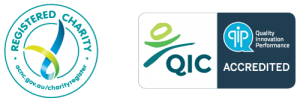
Name
Rebecca Neilson, Manager – Prevention and Mental Health Program
James Rathborne, Project Officer
Penny Weiss, Project Officer
Organisation
Health, Prevention, Policy and Supervision:
State Insurance Regulatory Authority, Department of Customer Service, NSW Government
What are you/your organisation currently focusing on in terms of workplace health and wellbeing?
SIRA has progressed a broad program of work to support better mental health outcomes in the NSW workforce. As the lead agency for the recovery@work program which is a component of the NSW Governments, Mentally Healthy Workplaces Strategy (2018-2022).
The recovery@work program aims to provide support to workers and employers in NSW that is practical, evidence-informed and guided by lived experience.
The broad goals of the recovery @ work program are:
- Improved social and mental health outcomes for the people of NSW
- Improved capacity for NSW workplaces to conduct recovery at work programs
- Reduced absenteeism and presenteeism in NSW workplaces
The Recovery @ work program includes four main streams of work:
- Recovery at work Toolkit
- Recovery Boost funding program
- Lived Experience Engagement
- Research: build the evidence on what works to improve what works to improve mental health recovery at work
What aspect of workplace health and wellbeing does your organisation do well in?
SIRA has a strong commitment to workplace health and wellbeing and has invested in this through initiatives such as mental health first aid and its commitment to Mentally Healthy Workplaces program. Prior to COVID-19 our organisation worked hard to celebrate a diverse range of cultural and recognition events to bring our people together and share more of each other’s lives. These events have continued online throughout COVID-19 with our leaders sharing their own lived experiences and strategies they use to maintain good mental health. We also have access to many health and well-being initiatives through our cluster (the Department of Customer Service and extensive health supports through our EAP service provider.
What’s your biggest challenge working in workplace health and wellbeing?
The biggest challenge, besides getting through our busy work schedule is to maintain meaningful connection with our valued stakeholders. Over the past 18 months we have developed relationships with government and social partners with shared aims.
How does WayAhead Workplaces add value to your organisation’s health and wellbeing program?
Being a member of WayAhead workplaces assists SIRA to network with organisations and individuals who are leading the way when it comes to workplace mental health.
How do you deal with stress?
One of the great things about our team is that we have a daily catch up meeting which is a great opportunity for each us to share current work issues, provide support for each other and importantly, enjoy some laughs as a team.
Rebecca: Daily yoga makes a huge difference to my physical and mental health. I also love a bike ride through the mangroves and parks in bicentennial park, it is a refreshing way to step outside of the busy world and get back to nature.
James: I like to take a step back and a deep breath and think reflectively on what is causing me stress and plan how I am going to deal with it. I find having a process and sticking to it helps. I also go for runs around centennial park and set myself goals outside of work.
Penny: I am really into walking and ocean swimming, which I do daily. I also read a lot, love to catch up with friends and play Mah Jong.
What are the key issues and considerations for people in workplace health and wellbeing roles?
People in workplace health and wellbeing roles are in high demand due to the challenges of COVID-19. It is most important that those who are providing support to others in their organisation prioritise their own health and wellbeing so that they can continue to provide essential support to others.
How do you switch off from work?
Rebecca: It can be hard! I am getting better at it almost a year on from starting to work from home. It helps to pack away and get out of the house, even just for a walk around the block to re-set.
James: Going for a run usually helps, or spending time with friends. I have a list of values I try to keep true to, and if I find I am worrying/stressing about work I go back to my values which gives me perspective.
Penny: I get straight out for a walk after work, switch my mind to looking at the trees and chatting with friends that I bump into along the way.
What is your best time-saving tip?
Rebecca: Writing a list in the morning (including work and home commitments) and making a call rather than sending an email where that is possible.
James: Working collaboratively can really speed things up, I find giving someone a quick call or asking for advice/assistance where necessary really saves time.
Penny: I like to ‘just do it’ rather than overthink things when it comes to the simple/small stuff. The daily team check-in is the best way to quickly solve a problem and keep projects on track and moving along.
What do you think the future of work health and wellness programs look like?
In the future, work health and wellness programs will continue to become more important and integrated into business. The recent COVID-19 pandemic has shone a bright light for individuals and organisations on the importance of wellness and mental health. The increase in open conversations by leaders relating to wellness and Mental Health is an important step in creating long term cultural change.


